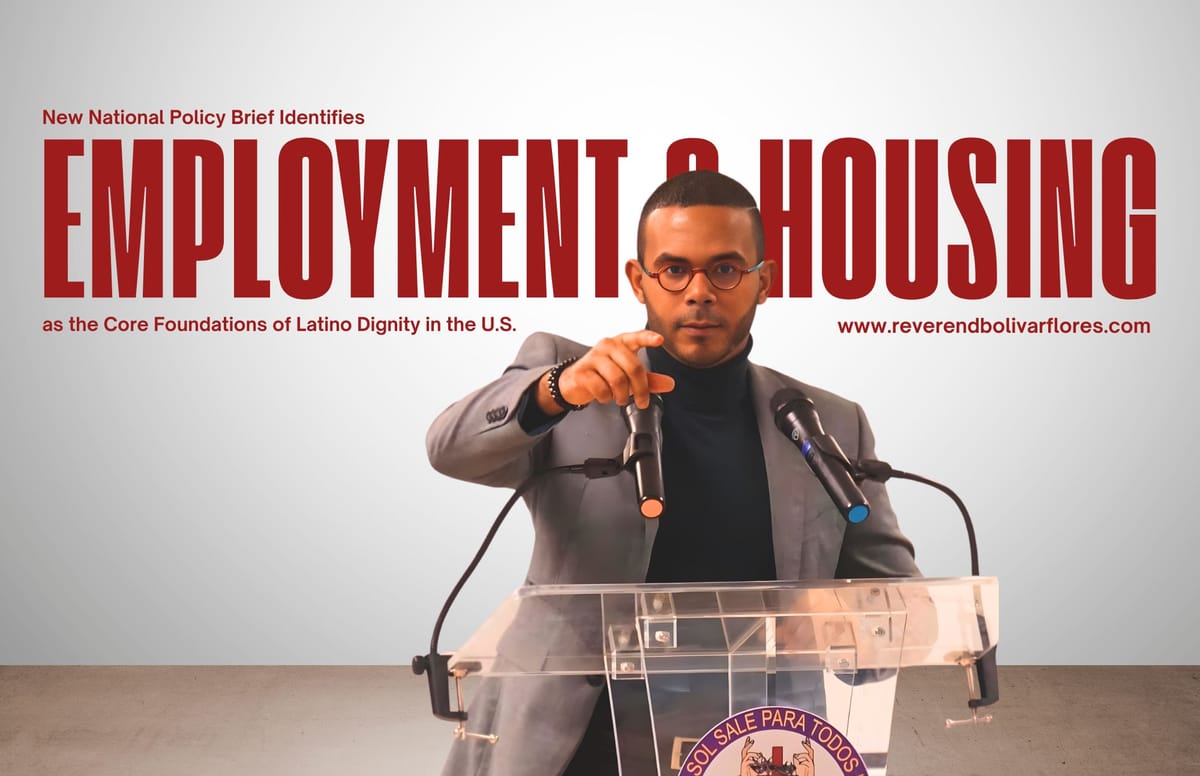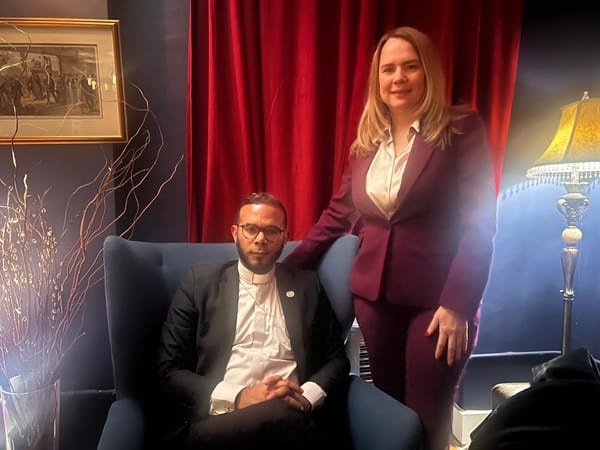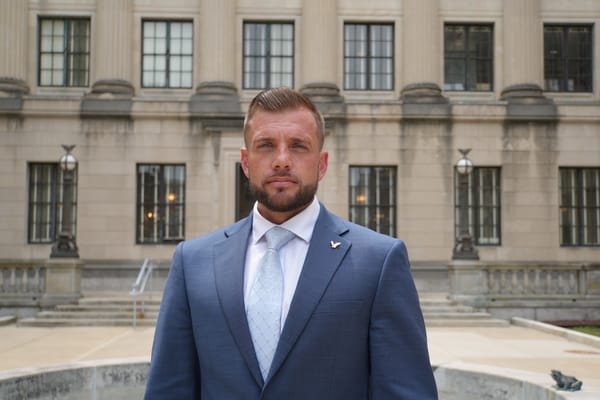New National Policy Brief Identifies Employment and Housing as the Core Foundations of Latino Dignity in the U.S.
A new national policy brief declares that Latino dignity in the U.S. begins with two essentials: the right to work and the right to a home.

Newark, NJ — A newly released national policy brief authored by Reverend Bolívar Flores, Employment and Housing as the Fundamental Architecture of Human Dignity, argues that dignified employment and stable housing are the two most decisive determinants of long-term well-being for Latino communities in the United States.
Grounded in empirical research and decades of community leadership, Flores asserts that Latino advancement cannot be achieved through immigration reform alone. Instead, it requires integrated systems that expand access to employment, housing, and local support networks — the essential structures that allow individuals and families to participate fully in society.
“Dignity is not symbolic,” Flores writes. “It is built. And that construction begins with a home and a job.”
According to the brief, employment provides agency and the ability to make self-directed choices, while housing anchors families physically and psychologically. Without these foundations, dignity becomes abstract, vulnerable to discrimination, instability, and cycles of poverty.
A Three-Pillar National Framework
The brief proposes a national strategy centered on:
- Employment
- Housing
- Community Integration
Flores calls for coordinated action across federal, state, municipal, private, academic, philanthropic, and faith-based institutions emphasizing that no single sector can do this work alone.
Key Policy Recommendations
- Fast-track credential recognition for immigrant professionals and skilled workers
- Employer incentives for hiring returning citizens and undocumented workers with pending status
- Zoning and financing reforms that allow faith-based organizations to expand transitional and supportive housing
- One-stop municipal navigation centers offering employment, housing placement, legal support, and family services under one roof
These recommendations aim to eliminate redundant bureaucratic barriers that disproportionately impact Latinos particularly new immigrants and system-impacted individuals.
Community and Faith-Based Organizations as Catalysts
Flores underscores that compassion is insufficient without infrastructure.
“Compassion must be paired with evidence and institutional design,” he writes.
He highlights that faith-linked community organizations are uniquely positioned to deliver rapid, culturally competent support especially when connected to public systems and backed by policy that removes institutional barriers.
Beyond Assistance: A Blueprint for Prosperity
The brief argues that prioritizing employment and housing is not just morally correct, it is economically strategic. Strategic investment in these areas will:
- Strengthen local economies
- Reduce recidivism and emergency shelter usage
- Improve mental and physical health outcomes
- Increase civic participation and educational advancement
Flores frames this not as charity, but as recognition of Latinos as vital contributors to the economic and cultural fabric of the United States.
About Reverend Bolívar Flores
Reverend Bolívar Flores is a respected Latino faith leader, scholar, and public advocate whose work bridges spiritual formation, public policy, and community transformation. He specializes in reentry integration, immigrant justice, and creating pathways to dignified employment and housing.
Website: reverendbolivarflores.com





